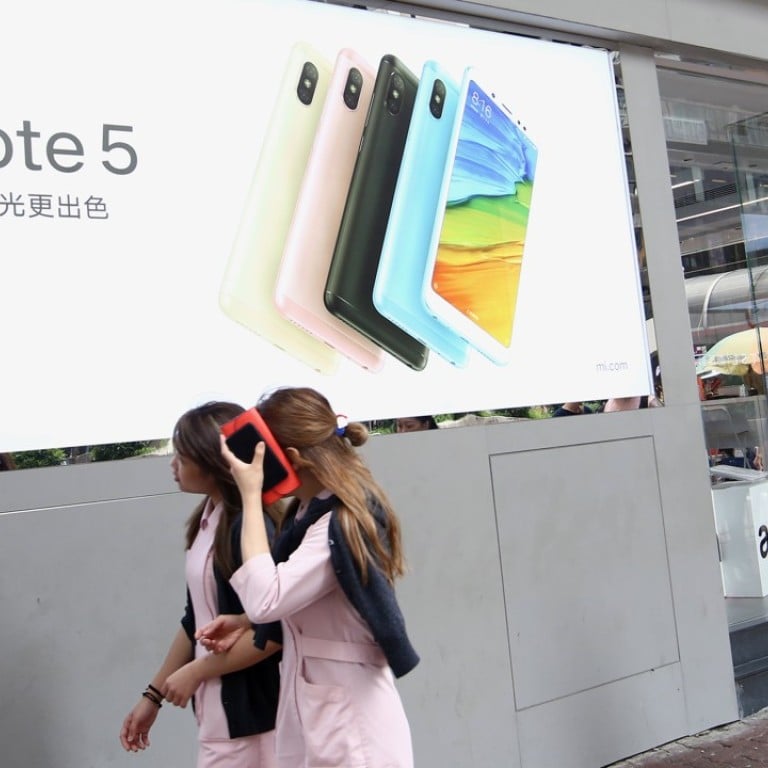
Hong Kong retail investors give Xiaomi’s IPO the cold shoulder, put off by high financing cost and valuation
Anecdotal evidence from four of the city’s biggest retail brokers indicated that the portion bought by individual investors exceeded their allocations by a combined 33 per cent on the first day of offer
Xiaomi’s US$6.1 billion initial public offering was subscribed to by Li Ka-shing, Jack Ma Yun and Pony Ma Huateng, but given the cold shoulder by most of Hong Kong’s retail investors, an ominous sign for the city’s bellwether fundraising attempt of 2018.
Anecdotal evidence from four of the city’s biggest retail brokers indicated that the portion bought by individual investors exceeded their allocations by a combined 33 per cent on the first day of offer, in stark contrast to the oversubscriptions recorded by Ping An Healthcare & Technology, China Literature and ZhongAn Online. A total of 109 million Xiaomi shares would be offered to retail investors over four days.
At Bright Smart Securities, only HK$1.3 billion of shares, or 3 per cent of its reserved quota, was subscribed to as of Monday evening.
The initial reception by retail investors was “worse than for Ping An Good Doctor, not to mention the record-breaking rush for China Literature,” said the brokerage firm’s chief executive Edmond Hui Yik-bun.
Xiaomi, the world’s fourth-largest smartphone maker, has picked a challenging time to raise funds in Hong Kong, as the cost of money measured by the one-month interbank offer rate, or hibor, soared to a 10-year high of 2.125 per cent.
Another factor weighing on Xiaomi’s IPO is its pricing, which values the company at between 39 to 51 times earnings, compared with the 14.8 times forward earnings at Apple, the world’s most profitable smartphone and devices maker.
“The number one concern for retail investors is Xiaomi’s valuation,” said Alvin Cheung, associate director for Prudential Brokerage, which saw a mere HK$500 million being subscribed to by retail investors, or 2 per cent of the HK$24 billion reserved. “The elevated hibor rate means high borrowing cost for IPO financing.”
Institutional investors also balked at Xiaomi’s valuation during a roadshow to take up the remaining 95 per cent of stocks in the offering. Xiaomi had to rely on two of its largest business partners – Qualcomm that supplies its chips, and China Mobile its network provider – as cornerstone investors to anchor its IPO.
Li Ka-shing, known affectionately in Hong Kong as “Superman” for his ability to pick winners, appears to have been persuaded of Xiaomi’s potential. The tycoon has subscribed to US$30 million worth of Xiaomi shares, according to Canning Fok Kin-ning, co-managing director of CK Hutchison Holdings. Hutchison agreed in April to sell Xiaomi’s phones in its network of 17,700 retail outlets around the world.
Jack Ma, chairman of this newspaper’s owner Alibaba Group Holdings, is also a believer in Lei. Yunfeng Capital, the private equity fund founded by Ma, was an early investor in Xiaomi before its public offer.
Hong Kong’s IPO market had traditionally been the place for a quick punt, where investors would borrow to buy stocks, selling them on the first trading day for a profit.
“At current margin financing rate of between 2.88 per cent and 3 per cent, Xiaomi’s stock will need to rise by between 10 per cent and 20 per cent when they trade, for investors to cover their financing cost,” said Prudential’s Cheung.
IPO fever has abated in the past few months with the hibor rising, with 53 per cent of 87 IPOs trading below their offer prices within the first month of trading, according to Bloomberg data.
Ping An Healthcare, also known as Ping An Good Doctor, was offered at HK$54.80 per share in April, but fell below its offer price on the second day of its trading debut, and has closed above that price on only two of the 36 market days since.
“Investors are afraid the same will happen to Xiaomi,” Cheung said.

